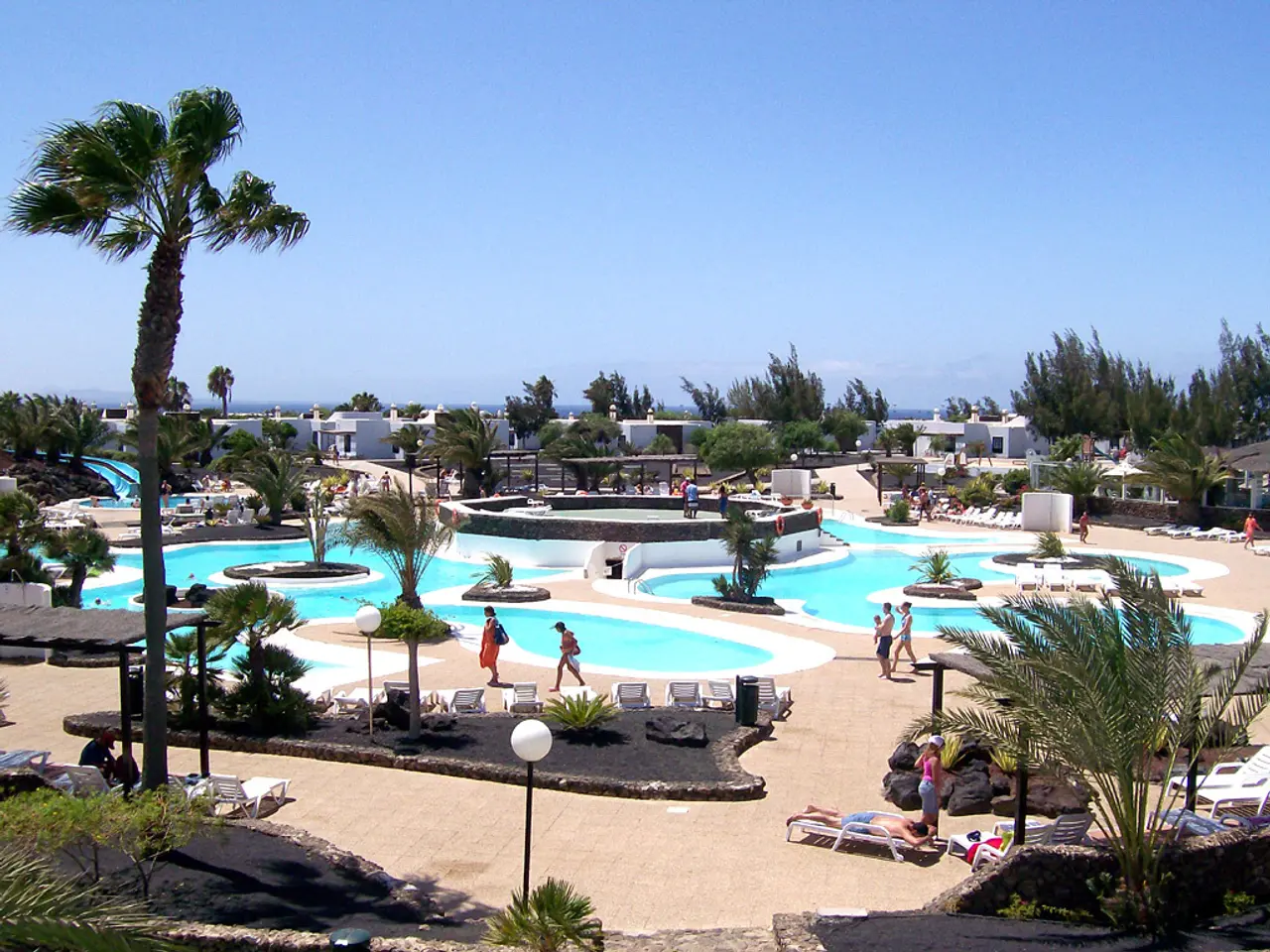Is a Spend-Heavy Hawaii After COVID-19 Still Worth Adding to Your Bucket List?
The beautiful forest reserve on the Big Island, once an uncrowded gem, is now experiencing a surge in popularity, with the necessity of reservations becoming a norm. This shift marks a significant change in Hawaii's tourism landscape, as the Aloha State embraces regenerative tourism with open arms.
Regenerative tourism, a model that prioritizes sustainability, community well-being, cultural respect, and environmental restoration, is advancing rapidly in Hawaii. It invites travellers to contribute to the healing and care of the natural environment and local communities, making travel a more meaningful experience than pre-COVID times.
The Malama Hawaiʻi Spirit, a Hawaiian concept of caring for Hawaii, is at the heart of many initiatives. For instance, the LeaLea Charity Run now donates participation fees to marine conservation efforts at the Waikiki Aquarium and integrates programs like beach cleanups combined with educational and cultural activities. This shift from passive sightseeing to active stewardship and learning is a testament to the transformation in Hawaii's tourism.
Educational and immersive experiences are another key element of regenerative tourism in Hawaii. Tours such as the Regenerative Mango and Tropical Fruit Tour in West Maui offer visitors hands-on learning about regenerative farming, agroforestry, and permaculture practices, deepening their appreciation for Hawaii's agricultural heritage and sustainability practices.
Community and cultural engagement are also crucial aspects of the new tourism landscape. The Hawaii Tourism Authority supports local projects, festivals, and workshops that showcase authentic multicultural Hawaiian experiences, ensuring tourism benefits and respects residents and local culture.
Environmental focus is another pillar of regenerative tourism in Hawaii. Efforts are being made to actively restore ecosystems, such as cleaning the Ala Wai Canal and marine conservation, rather than just conserving or minimizing impact. Tourists are encouraged to participate in these regenerative practices, creating a travel experience that contributes to ecological and community resilience.
Compared to pre-COVID times, regenerative tourism in 2025 Hawaii is more meaningful because it integrates education and direct involvement, fostering a deeper connection to Hawaiian culture and environment. Visitors engage in active care and restoration of the destination, providing a sense of purpose and contribution that enhances the overall travel satisfaction. The focus on community enrichment ensures tourism supports residents’ quality of life, balancing economic benefits with social and environmental responsibility.
Hawaii in 2025 offers a chance to learn about Hawaiian history, immerse in the culture, engage in conservation, and support local businesses. Visitors are seeking out more authentic, community-based experiences, making Hawaii more fulfilling due to its slower pace and focus on authentic experiences. However, the increased popularity has led to higher costs in flights, hotels, rental cars, and excursions, making it a little more expensive. Nonetheless, travellers may find that the valuable memories they come back with make the extra cost worthwhile.
More planning is required compared to pre-COVID times, as many popular sites now require timed reservations to help preserve fragile ecosystems and reduce crowds. Hawaii in 2025 is more structured due to the need for timed reservations for popular sites. For those seeking an authentic Hawaiian experience, there are opportunities to follow in the footsteps of Anthony Bourdain and eat like a local. Taro farm tours and traditional canoe lessons provide a chance to immerse in the culture and truly experience the Aloha Spirit.
- To make the most of their travels in 2025 Hawaii, visitors should consider incorporating regenerative tourism hacks into their itineraries, such as participating in educational and immersive activities like the Regenerative Mango and Tropical Fruit Tour in West Maui for a deeper appreciation of Hawaii's agriculture and sustainability practices.
- While Hawaii in 2025 offers a more fulfilling travel experience due to its focus on community-based and authentic experiences, planning becomes crucial with the necessity of timed reservations for popular sites, transforming the landscape into a structured one, just like the home-and-garden being meticulously maintained for their timeless charm and beauty.




